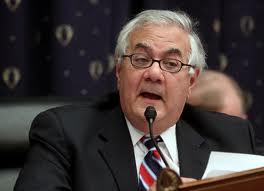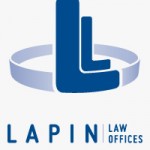 Representative Barney Frank (D-Mass.) recently introduced H.R. 4101 (112th Congress, Second Session) entitled the “Fair Debt Collection Practices Clarification Act of 2012”, to the House Committee on Financial Services. The proposed Act would alter the Fair Debt Collection Practices Act (FDCPA) and permit debt collectors to leave voicemails and messages on answering machines, which is currently permitted only if the debt collectors provides certain information, which itself can cause a FDCPA violation. The proposed Act would require the Consumer Financial Protection Bureau (CFPB) to set forth regulations regarding these messages. In addition, H.R. 4101 would limit the ability of a debt collector’s use of arbitration to settle a dispute.
Representative Barney Frank (D-Mass.) recently introduced H.R. 4101 (112th Congress, Second Session) entitled the “Fair Debt Collection Practices Clarification Act of 2012”, to the House Committee on Financial Services. The proposed Act would alter the Fair Debt Collection Practices Act (FDCPA) and permit debt collectors to leave voicemails and messages on answering machines, which is currently permitted only if the debt collectors provides certain information, which itself can cause a FDCPA violation. The proposed Act would require the Consumer Financial Protection Bureau (CFPB) to set forth regulations regarding these messages. In addition, H.R. 4101 would limit the ability of a debt collector’s use of arbitration to settle a dispute.
CURRENT LAW REGARDING DEBT COLLECTOR MESSAGES
The FDCPA has two provisions that relate to debt collectors leaving voice and answering machine messages: § 1692c(b) [limits communications by debt collectors to persons other than the debtor] and 15 USC 1692e (11) [requires the debt collector to provide certain information in all communications with debtors].
The U.S. District Court for the Southern District of New York, in Foti v. NCO Financial Systems, Inc., 424 F.Supp.2d 643 (S.D.N.Y. 2006), was asked to answer whether a debt collector could leave a pre-recorded, standardized message on a consumer’s answering machine that identified the name of the debt collector, indicated it related to a debt and a telephone number for the debtor to call back. The debt collector argued that the message did not constitute a “communication” as defined by the FDCPA as it did “not convey any information regarding a debt, but instead simply requests a return call regarding an important business matter.” The court rejected this argument. The debt collector further argued that if the court defined this type of message as a “communication” under the FDCPA, it would be left with a “Hobson’s Choice” because it would be required to identify itself as a “debt collector”, as required by 1692e(11) but is prohibited from leaving a message identifying themselves as such by 1692c(b)’s prohibition on communications to third parties. [A “Hobson’s choice” is an apparent free choice when there is no real alternative.]. The court again rejected this argument finding that the alleged “Hobson’s Choice” was self-imposed by the debt collector. Notably, the court concluded that the debt collector could chose to not leave a message at all. The court said that debt collectors who do choose to leave voice or answering machine messages must give the “mini-miranda” warnings required by the FDCPA. [A mini-miranda warning generally requires a debt collector to that the communication is from a debt collector and that any information obtained may be used to collect the debt.] The Foti v. NCO Financial Systems, Inc. decision is available here.
The Foti decision changed debt collection activity significantly and brought about the term “Foti claim” for FDCPA claims brought against debt collectors who leave voicemail messages that do not include the required information.
H.R. 4101: THE PROPOSED FAIR DEBT COLLECTION PRACTICES CLARIFICATION ACT OF 2012
H.R. 4101, the Fair Debt Collection Practices Clarification Act of 2012, begins:
To amend the Fair Debt Collection Practices Act to exempt a debt collector from liability when leaving certain voice mail messages for a consumer with respect to a debt as long as the debt collector follows regulations prescribed by the Bureau of Consumer Financial Protection on the appropriate manner in which to leave such a message, and for other purposes.
The proposed Act would add a new section to the FDCPA permitting debt collectors to leave voice and text messages under certain circumstances:
A debt collector may leave messages for a consumer in connection with the collection of a debt on the consumer’s answering machine, voice messaging system, or other similar device, including in an initial communication with the consumer, so long as the message complies with regulations prescribed by the Bureau [CFPB to ensure the preservation of the privacy and other rights granted to the consumer.
It would require the CFPB to promulgate regulations that would “specify the content or text of” all voice and text messages from debt collectors to consumers within 6 months of the Act’s passage.
The other significant change in H.R. 4101 is that it would limit debt collector’s ability to use arbitration to resolve a debt dispute. Debt collectors prefer arbitration over court proceedings as they are cheaper for the debt collector, debtors do not get a jury to decide the case and the debt collectors are much more likely to be familiar with the arbitrators than the average debtor. It is unfair to a consumer to require arbitration before there is a dispute. Consumers should be able to agree to arbitrate but not required to give up their right to let a judge or jury decide.
The full text of H.R. 4101, the Fair Debt Collection Practices Clarification Act of 2012, is available here.
THE FDCPA SHOULD NOT BE AMENDED TO PERMIT DEBT COLLECTORS TO LEAVE MESSAGES
There are a number of reasons why H.R. 4101’s changes to the FDCPA, which would permit voicemails and ansering machine messages, should not be passed. First, it is important to note that Representative Frank, who is not seeking re-election, is one of the main authors of the Dodd-Frank Wall Street Reform and Consumer Protection Act, which created the CFPB. The CFPB did not have a Director due to political opposition to the CFPB itself until January 4, 2012. Richard Cordrey, the CFPB Director, was a recess appointment. Both the CFPB and its appointment are highly political issues. Representative Frank, by giving the actual rule making authority to the CFPB, may be attempting to help legitimize and provide additional power to the CFPB.
Second, the power given to the CFPB regarding this substantial change to FDCPA usurps legislative authority and gives it over to the CFPB to set through the rule-making process. As the CFPB Director is a political appointment, a Director more sympathetic to the collections industry can alter the rules and cause potential conflicts with other third-party FDCPA disclosure prohibitions. The result will likely lead to confusion and the debtors will be the one left to suffer the impact.
Third, the stated purpose of the FDCPA is:
To eliminate abusive debt collection practices by debt collectors, to insure that those debt collectors who refrain from using abusive debt collection practices are not competitively disadvantaged, and to promote consistent State action to protect consumers against debt collection abuses
As the N.Y. court in Foti noted, debt collectors are not left with a “Hobson’s choice” regarding voicemail and answering machine messages. They can choose to not leave a message; they can try calling again or sending a letter. The proposed Act would likely change the protections set forth in Foti and expose debtors to potential embarrassment and abuse.
Finally, there is a serious question about potential conflict with the Telephone Consumer Protection Act (TCPA), which prohibits autodialed (robodialed) or prerecorded calls to cellular phones without the prior express consent of the debtor. Would the next step if H.R. 4101 is passed be to change the TCPA to permit debt collectors to use autodialers and prerecorded messages. The penalties for TCPA violations are much greater than for the FDCPA and consumers can ill afford to lose the little protection they have.
WHAT YOU CAN DO
Lapin Law Offices urges you to contact your Representatives and Senators to oppose those provisions of H.R. 4101, the Fair Debt Collection Practices Clarification Act of 2012, that would alter the FDCPA and permit debt collectors to leave voicemail and answering machine messages. Specifically, Section 2 of the Act.
Nebraskans are urged to contact their United States Congressional Members:
Senator Ben Nelson
Senator Mike Johanns
Representative Jeff Fortenberry
Representative Lee Terry
Representative Adrian Smith
Representative Barney Frank may be contacted through his website.
You can also submit letters to congressional members at OpenCongress.org. In addition, you can track this and other federal legislation at the Library of Congress THOMAS page.
PRIOR POSTS REGARDING DEBT COLLECTION AND TELEMARKETING
- CFPB Proposes Rule to Define “Larger Participants” It Will Monitor
- Social Media and Debt Collection: Facebook and Twitter (Part 1)
- Social Media and Debt Collection: Limited in the United Kingdom (Part 2)
- Social Media and Debt Collection: The United States (Part 3)
- Proposed Act Would Permit Debt Collectors to Use Auto-Dialers to Call Cellular Telephones
ABOUT LAPIN LAW OFFICES
 Lapin Law Offices represents consumers harassed or abused by debt collectors and those whose rights have been violated under the Fair Debt Collection Practices Act (FDCPA). You can learn more about your rights by calling us at 402-421-8033 or through our websites: Lapin Law Offices or StopBadCollectors.com for a free consultation.
Lapin Law Offices represents consumers harassed or abused by debt collectors and those whose rights have been violated under the Fair Debt Collection Practices Act (FDCPA). You can learn more about your rights by calling us at 402-421-8033 or through our websites: Lapin Law Offices or StopBadCollectors.com for a free consultation.
